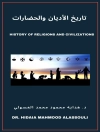In ‘The Faith of Our Fathers, ‘ James Gibbons presents a compelling exploration of Catholicism’s foundational tenets, interweaving historical perspectives with personal conviction. Gibbons employs a didactic yet accessible literary style, aiming to illuminate the intrinsic values of the Catholic faith for both believers and non-believers alike. The book addresses critical theological issues, church doctrine, and moral principles, all while situating itself within the religious landscape of the late 19th century, a period marked by social upheaval and shifting belief systems. James Gibbons, an influential American cardinal, was born into a world where faith struggled against the tides of modernity. His deep-rooted commitment to promoting understanding between the Catholic Church and contemporary society informed this work. A champion of social justice, Gibbons’ life experiences—shaped by his pastoral duties and dedication to education—encourage readers to wrestle with the complexities of faith in an increasingly secular world. ‘The Faith of Our Fathers’ is a seminal text that deserves a place on the bookshelf of anyone seeking to understand the intellectual underpinnings of Catholicism. Gibbons articulates timeless truths in a manner that is both thoughtful and inviting, making this book an essential read for those interested in theology, history, or the intersection of faith and reason.
लेखक के बारे में
James Gibbons (1834-1921) was an esteemed Catholic prelate and writer, most prominently recognized for his contributions to the understanding and explanation of Catholic doctrine to American audiences. Born in Baltimore, Maryland, Gibbons became one of the most influential figures in the American Catholic Church, eventually ascending to the rank of Cardinal. His literary work, ‘The Faith of Our Fathers’ (1876), cemented his reputability as a scholar and apologist of the faith. The book aimed to explain the beliefs and practices of the Catholic Church to a largely Protestant America, doing so with clarity and persuasive simplicity. It became exceedingly popular, suggesting a significant influence at a time when religious tensions and misunderstandings were rife. Gibbons’ writings exhibit a passionate effort to bridge divides and present Catholicism in a manner that is accessible and non-confrontational, reflecting his overall ecumenical approach to faith. His efforts as an author were mirrored in his ecclesiastical work, wherein he championed social issues and was actively engaged in the betterment of relations between the Church and the modern world. His legacy as an author lies not only in the articulate defense of his faith but also in his ability to engage respectfully and thoughtfully with an audience that was often skeptical of Catholicism.




